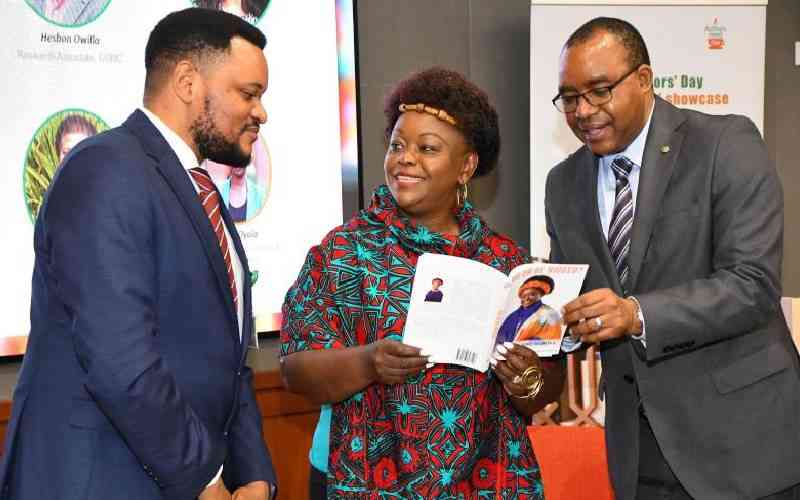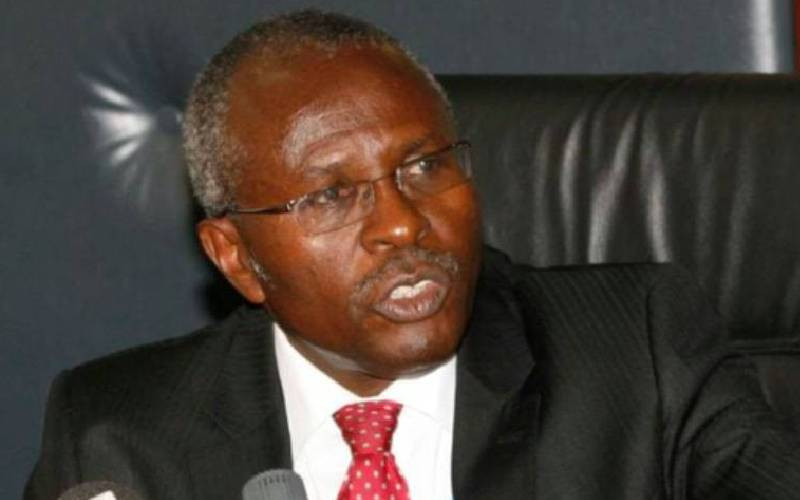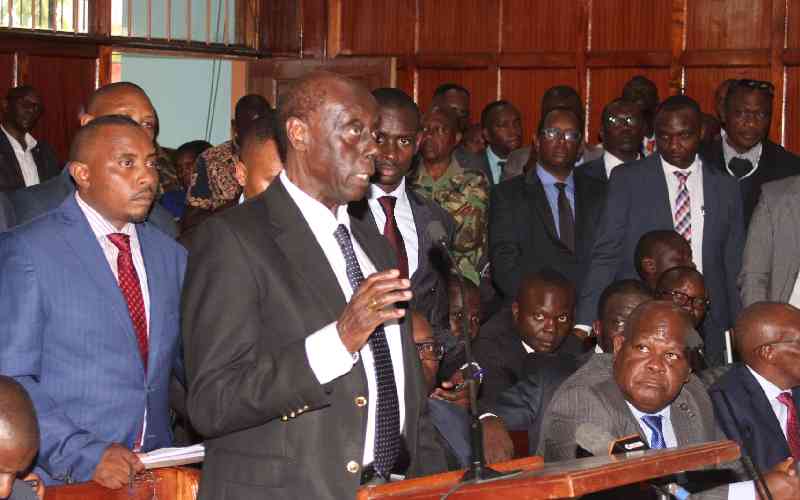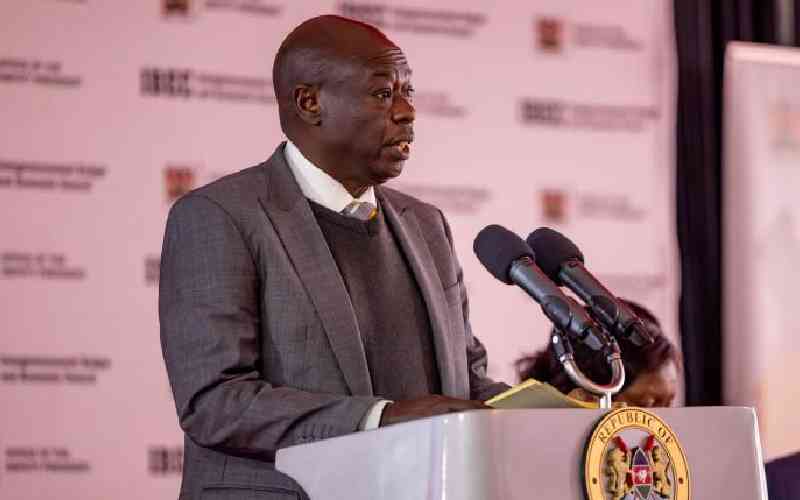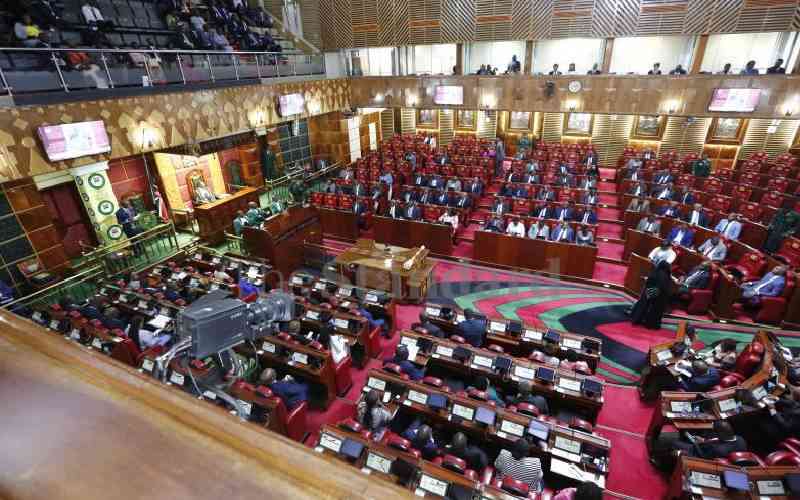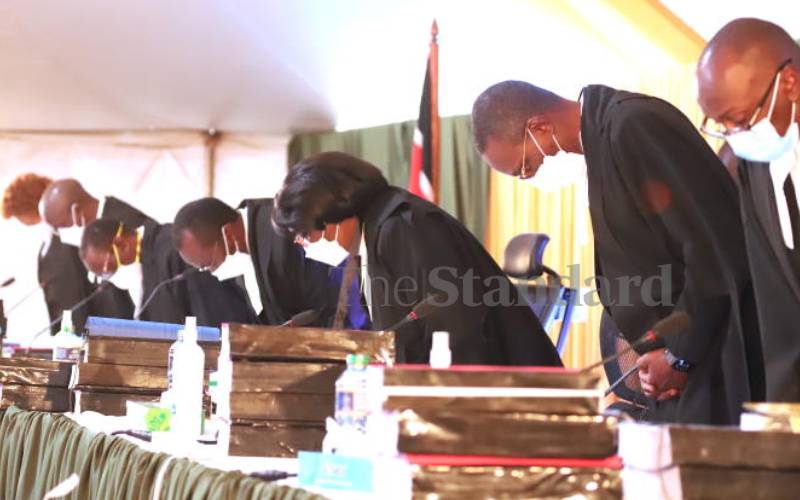
In a few days, Kenya will celebrate the Constitution’s 11th birthday.
Nothing symbolises the difference the Constitution has wrought in the decade of its existence more than the decision rendered by the Court of Appeal on Friday.
While in typical Kenyan fashion we will normalise the abnormal, the rest of Africa, particularly our neighbours Uganda, Tanzania and Rwanda, will be marvelling at how a Judiciary on this continent can have the temerity to stop the Executive in its tracks and thrive.
Kenyans, including those who oppose the court’s decision, must stand proud that we continue to cement our place as a constitutional democracy in the midst of a regional trend towards authoritarianism.
We must also celebrate the intellectual rigour that both the High Court and Court of Appeal exhibited in the two momentous decisions.
Even those who disagree with the eventual findings will recognise that our court’s decisions will lie in a place of prominence in international jurisprudence. As evidence of jurisprudential leadership, the High Court decision is now regularly quoted in jurisdictions across the world, including in Asia.
At the local level, the decisions provide key lessons, which one hopes will be taken seriously by those exercising power. The unanimous calling out of the Executive for its refusal to comply with the IEBC Act’s requirement to fill vacancies immediately the same arose should serve as a warning that breach of the law has consequences.
Had the president and his team followed the law, the issue of IEBC quorum, which was fatal to the State case, would not have arisen. The indictment on Parliament for failing to enact a law on referenda was on point.
Much of the penumbra in which the country has operated in this process would have been cured by an appropriate statutory framework. There have been calls for a referendum law since 2010, but Parliament has continued with its usual casualness, to dismiss the gaping lacuna.
The Appellate Court must be appreciated for rejecting the High Court’s indictment of the president without according him a hearing; it was one of the unfortunate taints in the otherwise intellectually laudable decision of the High Court and a basis for claims the High Court judges had personal angst against the president.
The Appellate Court’s rejection of the High Court’s declaration that proposed constitutional amendments must be submitted as distinct and separate questions was laudable; it would have made the referendum process unduly problematic and unnecessarily expensive.
There are however several concerns that the decisions by the two courts have raised and that must be cause for sober reflection.

First, we must recognise that the courts undoubtedly re-wrote the Constitution. Using their interpretive power, the courts introduced several principles now substantive parts of our Constitution. First-year law students will not need to ask whether judges make laws in Kenya. The judges limited the expressly stated amendment powers granted in Article 255.
They redefined the word amendment and introduced into the constitutional lexicon the term “dismembering”, granting it constitutional status. They created and prescribed a new hierarchy in the exercise of sovereign power called primary constituent power.
They prescribed how this power was to be exercised, including its sequencing. All these rewrites cannot be found anywhere in the many constitution-making source documents, including the reports of the CKRC, the Bomas Constitutional Conference, the Committee of Experts or the Parliamentary Select Committee. This was a creation of the courts.
While this exercise of judicial power is generally right and legitimate, its application, in this case, requires reflection. The additional rigidity introduced by the courts may lead to the opposite extreme where legitimate and progressive changes to the Constitution will prove impossible to introduce.
Secondly, some propositions by the courts, while appearing pro-people, have the effect of eroding the exercise of people’s constitutional powers. If one reads both judgements on the use of the popular initiative, the threshold is too high for the average citizen.
The requirement to carry out civic education, ensure public participation, facilitate a constituent assembly, translate copies into Kenyan languages, including Braille, makes this process a practical impossibility for citizens.
Since the State is precluded from engagement in a citizen-driven process, public funds cannot be used. The bar to the president using the popular initiative to propose amendments is attractive in this season when the president has significant control of Parliament.
We are however a presidential system. We can theoretically elect an independent president who has no members in Parliament. The judges’ flippant dismissal of this argument averring inter alia that “the President has no business amending the Constitution since he was elected to implement it” and that he “has immense authority to use the Parliamentary initiative route” was unreflective.
On the whole, these decisions provide an opportunity for continuing reflection on how best to advance Kenya’s growth as a constitutional democracy.
For the promoters of BBI, your good faith in advancing the agenda will be evidenced by how effectively you implement the myriad proposals in the BBI report that do not require constitutional amendments.
Let us see allocation to counties increased. Let young people get their tax holidays. Let us improve inclusion in the public sector. And so much more. To use Biblical language, against these, there is no law. Over to you.
 The Standard Group Plc is a multi-media organization with investments in media platforms spanning newspaper print
operations, television, radio broadcasting, digital and online services. The Standard Group is recognized as a
leading multi-media house in Kenya with a key influence in matters of national and international interest.
The Standard Group Plc is a multi-media organization with investments in media platforms spanning newspaper print
operations, television, radio broadcasting, digital and online services. The Standard Group is recognized as a
leading multi-media house in Kenya with a key influence in matters of national and international interest.

